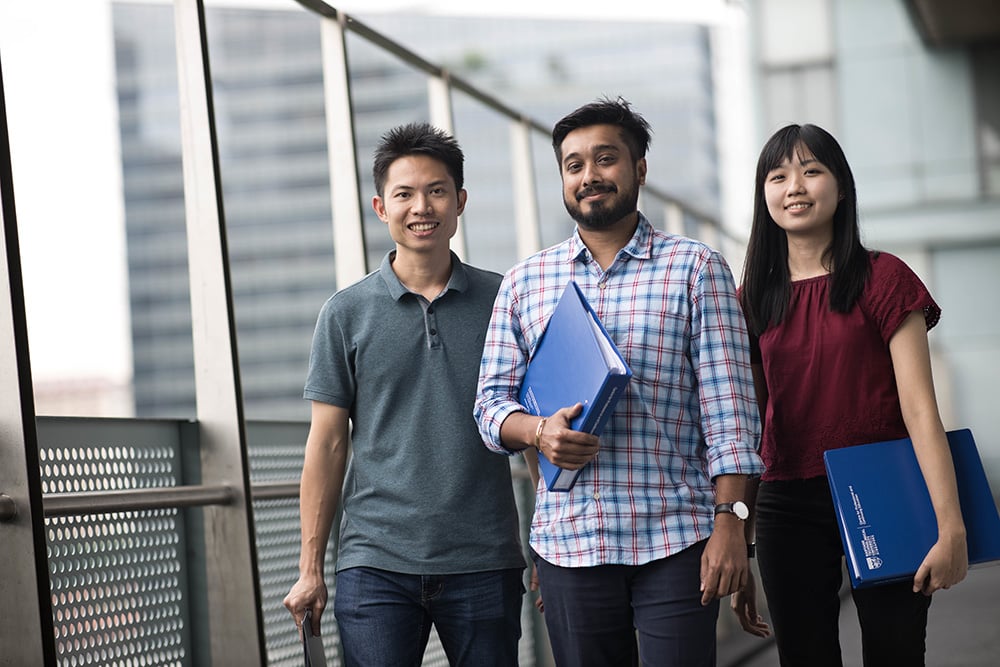Introduction
The rationale of this course is to lead the learners in exploring the opportunities and approaches of electrification in today and tomorrow industry. This course provides learners with a deeper understanding into electrical power system and its power conversion issues and practices, to appreciate the importance of developing waste heat recovery practices, and eventually build the overall picture of electrified land and air systems for a sustainable world.
The course is part of:
- Graduate Certificate in Sustainability — Strategy, Energy, Environment, and Circularity
The rationale of this course is to lead the students in exploring the opportunities and approaches of electrification in today and tomorrow industry. This course provides participants with a deeper understanding into electrical power system and its power conversion issues and practices, to appreciate the importance of developing waste heat recovery practices, and eventually build the overall picture of electrified systems for a sustainable world. Its objectives include be exposed to latest practice in the industry through lab tour and be introduced to advanced technologies from domain experts.
The students are going to be exposed to industry practices and frontier technologies in the Electrification area through:
- Lab tour to company for real-life experience of electrification technology for the decarbonization industry
- Successful case studies for real-life learning of
- the electrification issues and challenges.
- the waste heat recovery
- the key components and functions of electrified systems
- the basic concepts and principles of electrical power system used in electric vehicles
- the power conversion issues and practices of different methods for charging electricity
To meet the requirement of SkillsFuture Singapore, assessment(s) will be conducted during every course. The assessment(s) include:
- Class Participation
- Group Presentation
- Individual Assignment
Suitable for current and aspiring professionals at all levels, from developing sustainability and social responsibility knowledge and skills, including the purpose-driven professionals, engineers, business leaders, entrepreneurs, and the corporate social responsibility and consulting professionals.
Standard Course Fee: S$1,798.50
|
SSG Funding Support |
Course fee payable after SSG funding, if eligible under various schemes |
||
|
Fee BEFORE funding & GST |
Fee AFTER funding & 9% GST |
||
|
Singapore Citizens (SCs) and Permanent Residents (PRs) (Up to 70% funding) |
S$1,650.00 |
S$539.55 |
|
|
Enhanced Training Support for SMEs (ETSS) |
S$209.55 |
||
|
SCs aged ≥ 40 years old |
|||
• NTU/NIE alumni may utilise their $1,600 Alumni Course Credits. Click here for more information.

Dr TAN Yen Kheng
Dr Tan Yen Kheng is an expert in Electrification and Digitalization domains, with more than 20 years of experience in power electronics engineering practices. He productized electric vehicle charging products with local companies for Enterprise Singapore innovation factory programme, demonstrated wireless power charging in Singapore on its national first electric taxi for electromobility in megacity programme and co-deployed sustainable DC grid solution with Philips and JTC into its Cleantech One building. His core strengths include leading multi-disciplinary groups to deliver high-value projects, growing enterprises businesses to emerging markets and being catalyst for innovative research and development of Electrification and Digitalization domains.
Yen Kheng is presently a technologist of startup companies, a product consultant of small-medium-enterprises and an educator of institute of higher learnings. He holds a Doctor of Philosophy (PhD) in Electrical and Computer Engineering awarded from the National University of Singapore.

Dr Amit GUPTA
Amit K. Gupta holds a bachelor’s degree in electrical engineering from the Indian Institute of Technology (IIT)-Roorkee and Ph.D. in Electrical Engineering from National University of Singapore (NUS). During 2000-08, he worked for Bechtel Corporation, Samsung Heavy Industries and Delphi Automotive Systems. During 2008-12, he worked for Vestas Wind Systems where he drove wind turbine drive train technologies and solutions. During 2012-24, he worked for Rolls-Royce Singapore Pte Ltd. in multiple roles and drove electrification technologies, products, and solutions for Aerospace, Defence, Industrial Power Systems etc. He spearheaded the collaboration between Rolls-Royce and Nanyang Technological University (NTU)-Singapore as Director of the Electrical Programme at Rolls-Royce@NTU Corporate lab and Director for the Electrical Power System Integration Lab @ NTU (EPSIL@N).
| COURSE TITLE | ACADEMIC UNIT |
| CEL010 Corporate Sustainability: Introduction | 1 |
| CEL011 Carbon Neutrality—Solving the Energy Puzzle | 2 |
| CEL013 Environmental Issues and Sustainability in Water and Waste Management | 2 |
| CEL014 Circular Economy-Enabling a Sustainable Future | 3 |
Listed courses are:
- Credit-bearing and stackable to Graduate Certificate in Sustainability — Strategy, Energy, Environment, and Circularity (9 AU).














/enri-thumbnails/careeropportunities1f0caf1c-a12d-479c-be7c-3c04e085c617.tmb-mega-menu.jpg?Culture=en&sfvrsn=d7261e3b_1)

/cradle-thumbnails/research-capabilities1516d0ba63aa44f0b4ee77a8c05263b2.tmb-mega-menu.jpg?Culture=en&sfvrsn=1bc94f8_1)

7e6fdc03-9018-4d08-9a98-8a21acbc37ba.tmb-mega-menu.jpg?Culture=en&sfvrsn=7deaf618_1)





